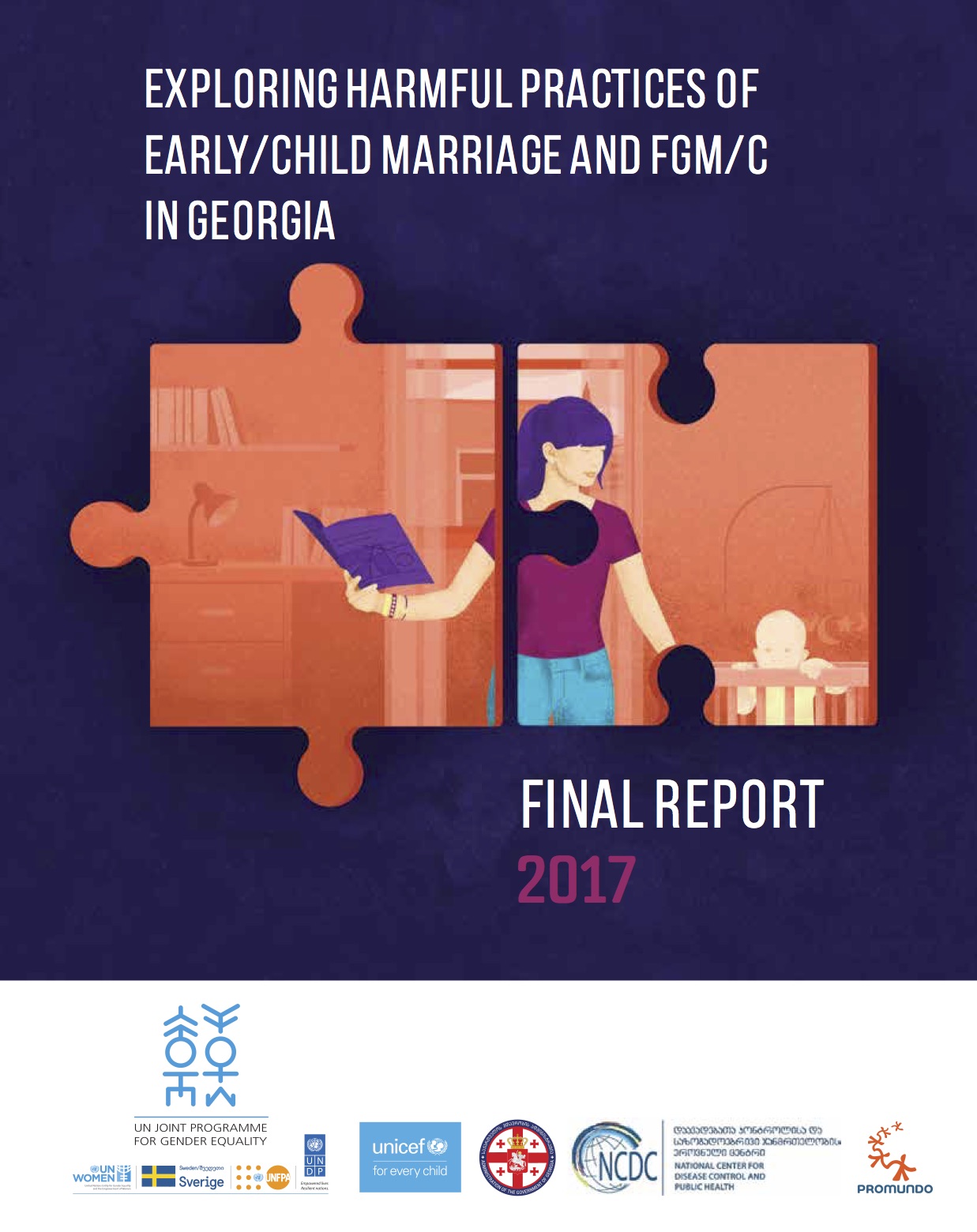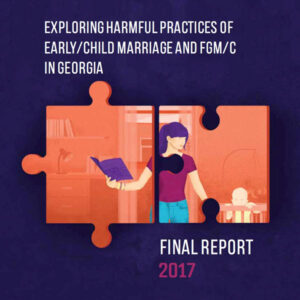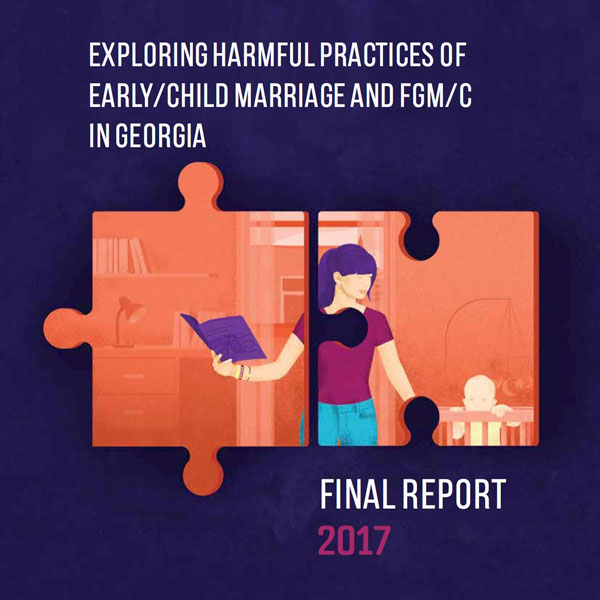 In Georgia, 14 percent of women marry before the age of 18 – one of the highest rates of any country in Europe. The practice of early/child marriage, however, has remained notably absent from public rhetoric and policies in the country, and a lack of recognition has led to major gaps in research on the issue.
In Georgia, 14 percent of women marry before the age of 18 – one of the highest rates of any country in Europe. The practice of early/child marriage, however, has remained notably absent from public rhetoric and policies in the country, and a lack of recognition has led to major gaps in research on the issue.
To address these gaps, Equimundo partnered with Georgia’s National Center for Disease Control to conduct a study on how and why attitudes, norms, and practices related to early/child marriage and female genital mutilation/cutting (FGM/C) persist in Georgia today, releasing the research findings last month in the report Exploring Harmful Practices of Early/Child Marriage and FGM/C in Georgia. Supported by UNFPA Georgia and UNICEF Georgia as part of a larger effort to understand the complexities of the practice as related to inequitable gender norms, the research took place in urban and rural sites in 10 regions and the capital.
Conducted through interviews and focus group discussions with more than 300 participants across Georgia, the study reveals not only the nature and negative impacts of early/child marriages – formal and informal unions that involve at least one person younger than 18 – but also the patterns and drivers of the practice, which are rooted in social norms that perpetuate unequal gender relations.
Key findings from the research include:
- Extent of early/child marriages: While some participants believed that early/child marriages only took place in rural areas or among ethnic minorities, the study shows that this practice is common and frequent across Georgia, including in the capital, Tbilisi.
- Role of adolescent agency: Although both girls and boys believed that they had greater say in choosing their partners in early/child marriage than had historically been the case, this proved truer for boys than for girls. Girls felt more pressure to marry overall, and families proved more supportive of boys telling their parents of their choice for a partner than of girls doing so.
- Transitions to adulthood – FGM/C: While many participants indicated that FGM/C was carried out in the past but is no longer practiced in the country, the research suggests it is more likely that the practice has gone underground due to greater social stigma.
- Impact of early/child marriage on girls’ mobility: While girls reported high use of technology (such as cell phones or the internet) before marriage, their usage drastically decreased after marriage, often at the hands of their husbands. Similarly, girls found themselves increasingly restricted in their mobility by both their husband and husband’s parents after marriage. Reasons for such behaviors were rooted in gender norms that dictate what is appropriate behavior for girls, producing strongly limited choices and constrained mobility for girls after marriage.
- Impact of early/child marriage on domestic violence: Although the stigma against domestic violence ensured that it remained in the private sphere, a closer analysis revealed that violence, in the form of controlling behaviors, was common in early/child marriages, and often perpetrated by the husband’s family.
- Drivers of early/child marriage: Drivers of early/child marriage that emerged from the research included norms that restrict adolescents from meeting freely, norms that consider premarital sex as taboo, norms of masculinity that promote men as sexual beings and contribute to boys wanting to have sexual relations during adolescence, and norms that stigmatize unmarried girls in their 30s, among other factors.
The research findings underscore the need to address the inequitable social norms that reinforce drivers of early/child marriage, including by better enforcing existing laws and offering higher-quality youth services, by targeting these norms through gender-transformative interventions, and by building more ground-up data on early/child marriages in Georgia.
Read the full report here.

